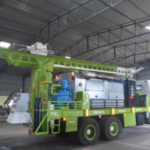As an AI language model, I don’t have access to real-time data or the ability to predict the future. Therefore, I cannot provide information about specific space exploration missions in 2023 or any information beyond the present date. However, I can provide you with a list of some significant space exploration missions that have taken place in recent years:
1. Apollo 11 (1969): The first manned mission to land on the Moon.
2. Voyager 1 and 2 (1977): Sent to explore the outer planets and now exploring interstellar space.
3. Hubble Space Telescope (1990): A space-based observatory that has provided stunning images and invaluable contributions to astronomy.
4. Mars Pathfinder (1997): Successfully landed a rover named Sojourner on Mars, the first successful Mars rover mission in decades.
5. Cassini-Huygens (1997): Explored Saturn and its moons, including the landing of the Huygens probe on Titan.
6. Mars Science Laboratory (Curiosity Rover) (2011): Landed the Curiosity rover on Mars, conducting experiments to assess the potential habitability of Mars.
7. New Horizons (2006): Examined Pluto and its moon, Charon, before continuing to explore the Kuiper Belt.
8. Rosetta (2004): Sent a probe to rendezvous with Comet 67P/Churyumov-Gerasimenko and deployed the Philae lander.
9. Chang’e missions (2007-present): A series of Chinese Lunar missions aimed at lunar exploration and sample return.
10. Perseverance Rover (2020): Successfully landed on Mars and is currently conducting investigations to explore the planet’s geology and search for signs of past microbial life.
These are just a few examples, and many other missions, both robotic and manned, have contributed significantly to our understanding of space exploration.



















